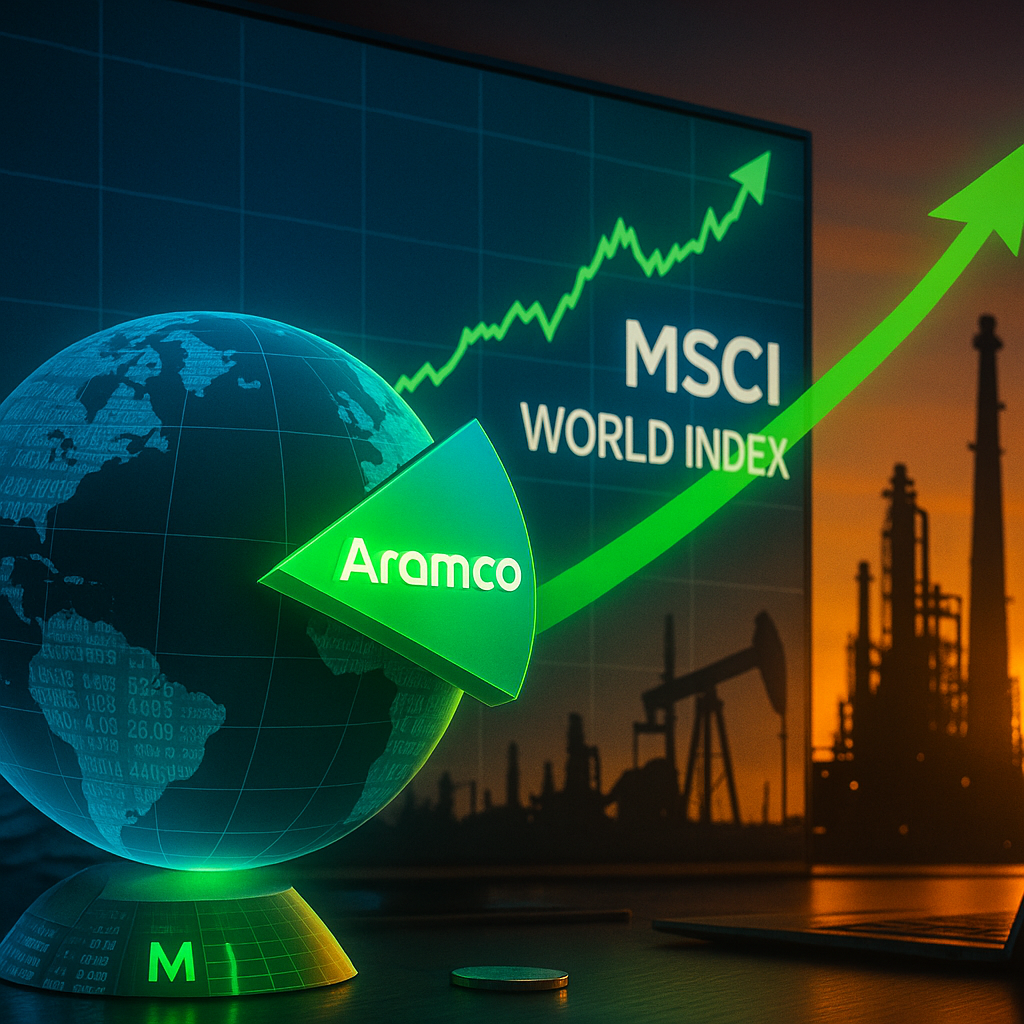MSCI’s recent rebalance impact arrives on May 15, 2025, with Saudi Aramco’s inclusion. Aramco now joins the MSCI World Index. This marks the first time Aramco appears in a major global benchmark. Funds will adjust their energy exposures before the effective date.

MSCI Rebalance Impact – Context and Catalyst
MSCI updates its indices twice a year. The May 2025 review added Aramco. The company met size, liquidity, and free-float rules. It now ranks among the top 20 free-float names. This move broadens the MSCI World Index’s energy base. It also shows MSCI’s goal to reflect global leaders. Investors have awaited this change for years. It underscores Saudi market reforms and foreign-ownership progress.
MSCI Rebalance Impact – Energy Weight Jumps
Before Aramco’s entry, energy made up about 4% of the index. Adding Aramco will lift that share to roughly 4.5%. Fund managers must buy Aramco shares to meet the new target. They will trim stakes in ExxonMobil and Shell to rebalance. As a result, the sector gains more influence on index returns. Energy stocks may see extra demand in the days before the rebalance. This shift highlights how index rebalances can alter sector bets.
MSCI Rebalance Impact – Tech Giants Lose Ground
Aramco’s inclusion slightly trims the weight of U.S. tech names. Apple and Microsoft each lose a few basis points. This change nudges the MSCI World Index toward greater geographic balance. North American tech now wields a marginally smaller share. The move may encourage investors to seek more global diversification. It also reminds them that index weights can shift quickly. Large-cap tech firms remain dominant but cede ground to new entrants.
What Investors Should Do
Funds tracking MSCI World will add Aramco automatically on the rebalance date. Traders should watch for higher Aramco trading volume. Portfolio teams can trim high-momentum stocks to free up cash. They may boost energy positions to match the new targets. Risk managers should review sector exposures and hedge if needed. Active managers might use this change to rebalance risk. Each investor’s strategy will differ, but all face the same mechanical trade.
Looking Ahead
This rebalance may foreshadow further shifts. Watch for MSCI’s next market-classification reviews. They could add more major emerging-market firms. Also monitor global policy changes that affect index rules. These factors will guide the next MSCI rebalance. Ultimately, index mechanics will keep shaping portfolio flows and sector weights.